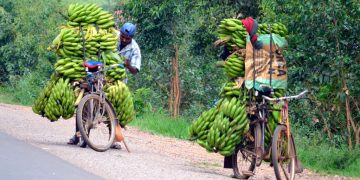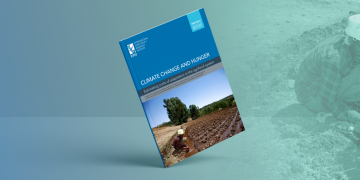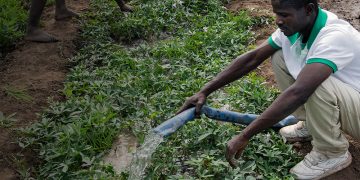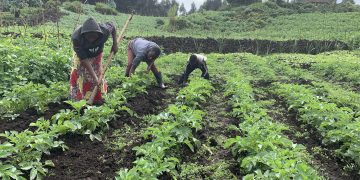In Rwanda, as in other countries, different types of households will experience the economic effects of the COVID-19 pandemic differently. We use a microsimulation approach to highlight the importance of these differences and to draw attention to the diversified livelihood strategies of Rwandan households in order to fully understand COVID-19’s impacts on their income and poverty status.
IFPRI Rwanda Webinar Recap – Farmer Typologies and Innovation Scaling in Rwanda
Last month, Dr. Rhys Manners, a data scientist from the Institute for Tropical Agriculture (IITA) spoke at IFPRI Rwanda’s inaugural webinar titled “Data-driven approaches to program targeting for agricultural transformation: Evidence on farmer typologies and innovation scaling in Rwanda.
Climate Change and Hunger: Estimating Costs of Adaptation in the Agrifood System
Food policy report, focusing on offsetting climate change impacts on hunger through investment in agricultural research, water management, and rural infrastructure in developing countries.
CHARTING A PRODUCTIVE, SUSTAINABLE FUTURE FOR SMALL FARMS AMID FOOD SYSTEM TRANSFORMATION
Researchers discuss their UNFSS brief that synthesizes evidence about the future of small farms, and outlines policies to help farmers perform as an important role in agrifood system transformation.
Assessing the economywide impacts of COVID-19 on Rwanda’s economy, agri-food system, and poverty: A SAM multiplier approach
Rwanda’s policy response to COVID-19 has been widely praised for containing the pandemic. Although the economic consequences are unavoidable, the country expects to return its economy to its high-growth trajectory. We use economic modeling tools to estimate the short-term economywide impacts of the unanticipated, rapid-onset economic shocks of COVID-19 on Rwanda.
- « Previous Page
- 1
- …
- 4
- 5
- 6
- 7
- 8
- 9
- Next Page »




